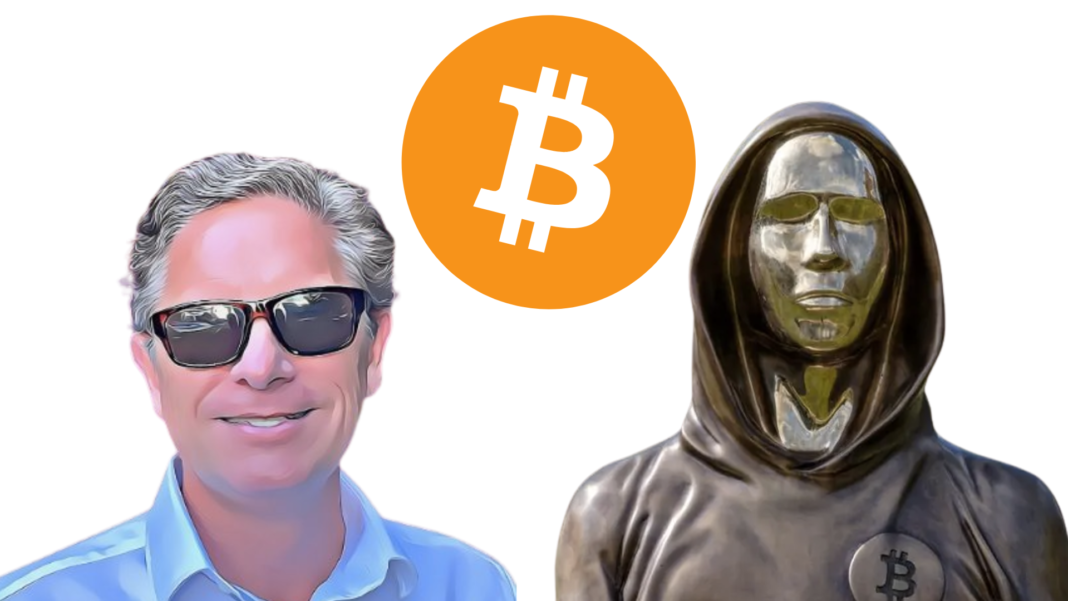Renowned cryptocurrency attorney James Murphy has launched a legal battle against the U.S. Department of Homeland Security (DHS), invoking the Freedom of Information Act (FOIA) in a bid to obtain transparency about alleged government knowledge of Bitcoin’s origins.
Murphy’s lawsuit specifically demands access to internal documents, emails, and meeting records that may reveal whether DHS officials ever met with individuals connected to the creation of Bitcoin.
The legal action stems from a 2019 claim made by DHS agent Rana Saoud, who alleged during a public event that her colleagues had met with four individuals in California suspected to be involved in Bitcoin’s early development.
Murphy argues that if such meetings did indeed take place, they should be properly documented and disclosed to the public, especially given Bitcoin’s massive global impact.
Legal Push for Accountability and Public Right to Know
Murphy’s initiative is about more than just uncovering the true identity of Satoshi Nakamoto, it is fundamentally a case about government transparency and public oversight.
With assistance from the U.S. Assistant Attorney Brian Field, Murphy emphasizes that understanding whether federal agencies hold critical information about Bitcoin’s origin is vital to public interest.
Bitcoin has become an integral part of the global financial landscape, influencing trillions of dollars in assets, regulatory frameworks, and national policies.
The public deserves to know whether their own government played any role, or has inside knowledge, of its foundational development.
The lawsuit challenges the assumption that such knowledge can remain hidden behind closed doors, asserting that federal law mandates disclosure when national agencies hold such potentially transformative information.
Also Read: BlackRock’s Bitcoin ETF Gains Ground, Poised to Overtake Satoshi Nakamoto’s BTC Holdings
DHS Agent’s 2019 Statement Resurfaces, Fueling Speculation
The lawsuit largely centers on a 2019 statement made by DHS agent Rana Saoud, who, during a professional event, mentioned that her agency had interacted with four people believed to be involved in the launch of Bitcoin.
According to Saoud, the meeting took place in California, and she raised concerns about the underlying intent of the Bitcoin project.
While her remarks were largely overlooked at the time, Murphy’s filing has reignited interest and prompted new speculation within the crypto community.
If verified, these meetings could mark a watershed moment in the ongoing mystery surrounding the elusive Satoshi Nakamoto, potentially revealing the government’s long-standing awareness, or even involvement, in Bitcoin’s creation.
Broader Debate Over Satoshi Nakamoto’s Anonymity Resurfaces
The legal action has reignited a long-standing debate: should the identity of Satoshi Nakamoto remain secret?
Proponents of anonymity argue that keeping Nakamoto’s identity concealed protects Bitcoin’s decentralized nature, free from centralized influence or manipulation.
On the other hand, some industry experts and legal minds suggest that uncovering the founder’s identity could lead to more effective regulation and accountability in the crypto space.
The possibility that the U.S. government may have insights, classified or otherwise, into Nakamoto’s identity adds a new layer of complexity.
It raises ethical and strategic questions about the implications such knowledge could have for the crypto ecosystem and whether it has been used to influence market dynamics or shape policy behind the scenes.
Also Read: Ava Labs Founder Emin Gün Sirer Warns of Quantum Threat to Satoshi’s 1M Bitcoins
Ongoing Developments Add Momentum to the Satoshi Mystery
Murphy’s lawsuit arrives amid a wave of renewed interest in the identity of Satoshi Nakamoto.
Recently, Coinbase director Conor Grogan hinted that Kraken exchange might hold clues about the founder’s identity, sparking further intrigue.
In a symbolic celebration, Plan ₿, a partnership between Tether and the City of Lugano, unveiled a life-sized statue of Nakamoto, reinforcing the cultural and historical significance of the anonymous figure.
Meanwhile, Canadian coder Peter Todd was named as the alleged Nakamoto in an HBO documentary, a claim he has publicly denied.
These unfolding developments reflect the ongoing fascination with Nakamoto’s true identity and ensure that the mystery continues to fuel legal actions, artistic tributes, and investigative journalism for the foreseeable future.
Also Read: NBA Legend Claims Satoshi Vision Predicts Bitcoin Super Rally by November 2024


